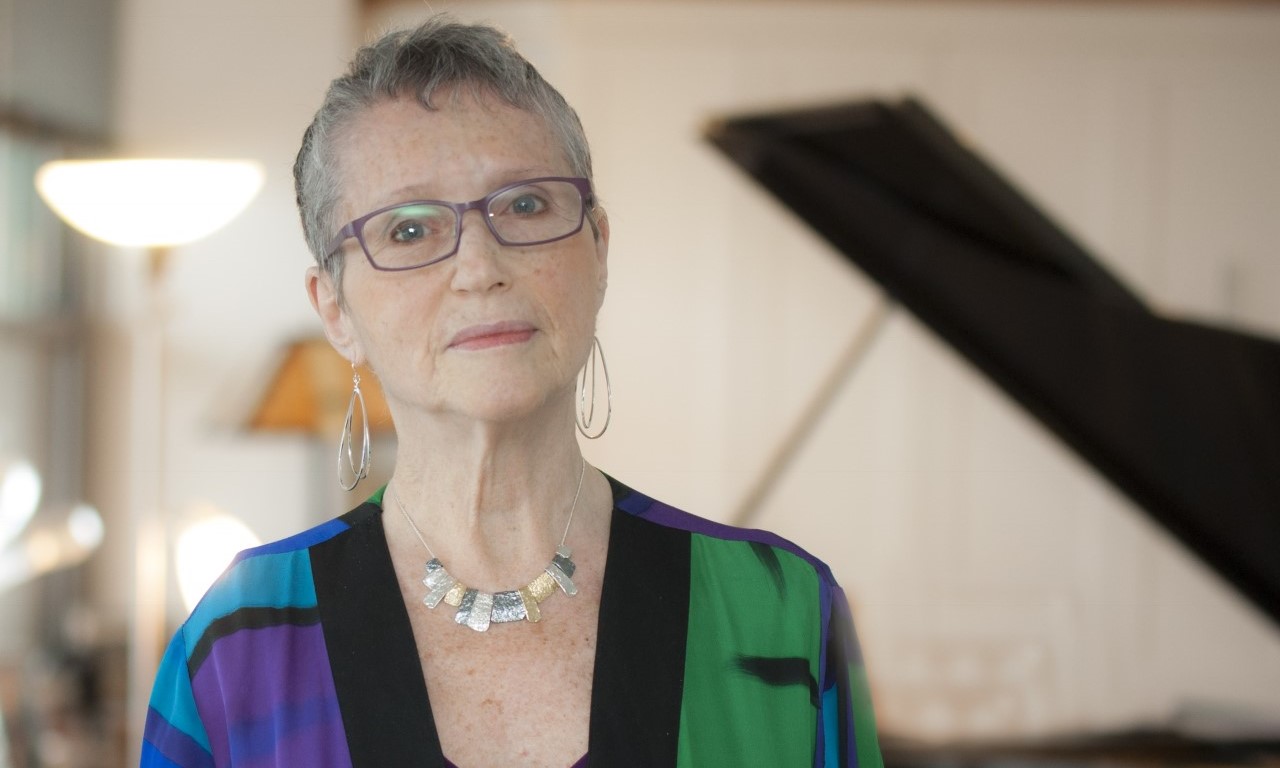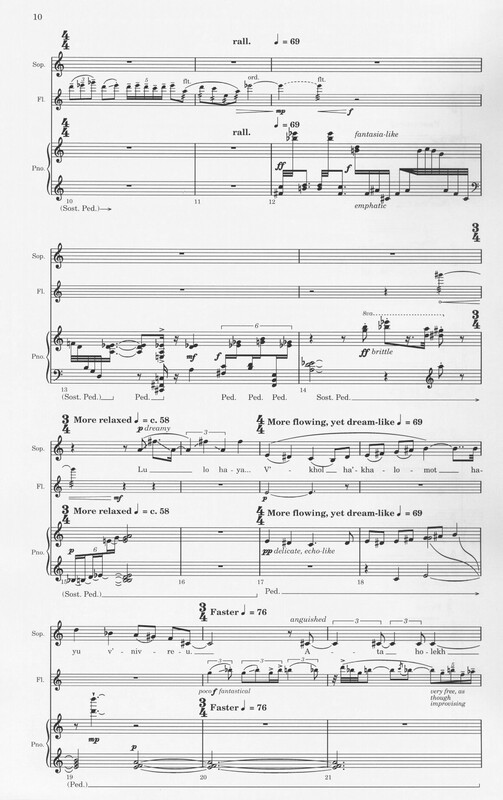Moon Songs
Item
-
Score title
-
Moon Songs
-
Composer
-
Shulamit Ran
-
Program note
-
Flute doubling piccolo
-
The invitation from flute virtuoso Mimi Stillman to compose a work for her Dolce Suono Ensemble's Mahler/Schoenberg 2012 concert series that could serve as an homage as well as a companion piece to Schoenberg's Pierrot Lunaire, one of the 20th century's seminal compositions, was as challenging as it was intriguing. It would seem almost natural to make the work’s critical position in music history a central focus in tackling such a task. And yet, the real homage to this masterpiece lies in the fact that nearly every one of its revolutionary, genre-defining innovations has been absorbed into the mainstream of much of the music of the hundred years that has followed its creation.
Thus, I opted to make this work a nod in the direction of Pierrot – a work that has profoundly influenced my music in so many ways–yet without necessarily forcing myself into a deliberate a piori attempt to comment on it musically, except for the important fact that Moon Songs uses as its point of departure and inspiration a selection of texts (in some cases just fragments of poems), all of which, in various ways, refer to the moon. The texts are set in Hebrew and English, the two languages that have been dominant in my life. The Hebrew texts span the gamut from the Bible, to medieval Hebrew poetry, to modern Israeli poetry. The English-language texts go from English Renaissance to contemporary American. As in many other works that use voice, including of course Pierrot Lunaire, the choice of texts and the way in which these texts are organized turned out to be a significant determining agent for the work that has ensued.
Moon Songs is organized in four "acts", with two entr'actes following Acts II and III. Each "act" uses different devices, both textually and musically, to create coherence and continuity. With the full blessing of the three living poets whose poetry I chose to set – Haim Gouri and Almog Behar (both Israeli poets), and Samuel Menashe of New York (Mr. Menashe sadly passed away in the summer of 2011, after the work was already completed) – I have taken some unusual liberties with their texts. Their poems act as the foundation as well as the glue that hold together the larger entities I have aimed to create (what I call the "Acts"), and in the case of Behar and Menashe, the selected poetry also becomes the "shell" or larger structure, into which fragments from other poems are interjected.
 Shulamit Ran
Shulamit Ran

